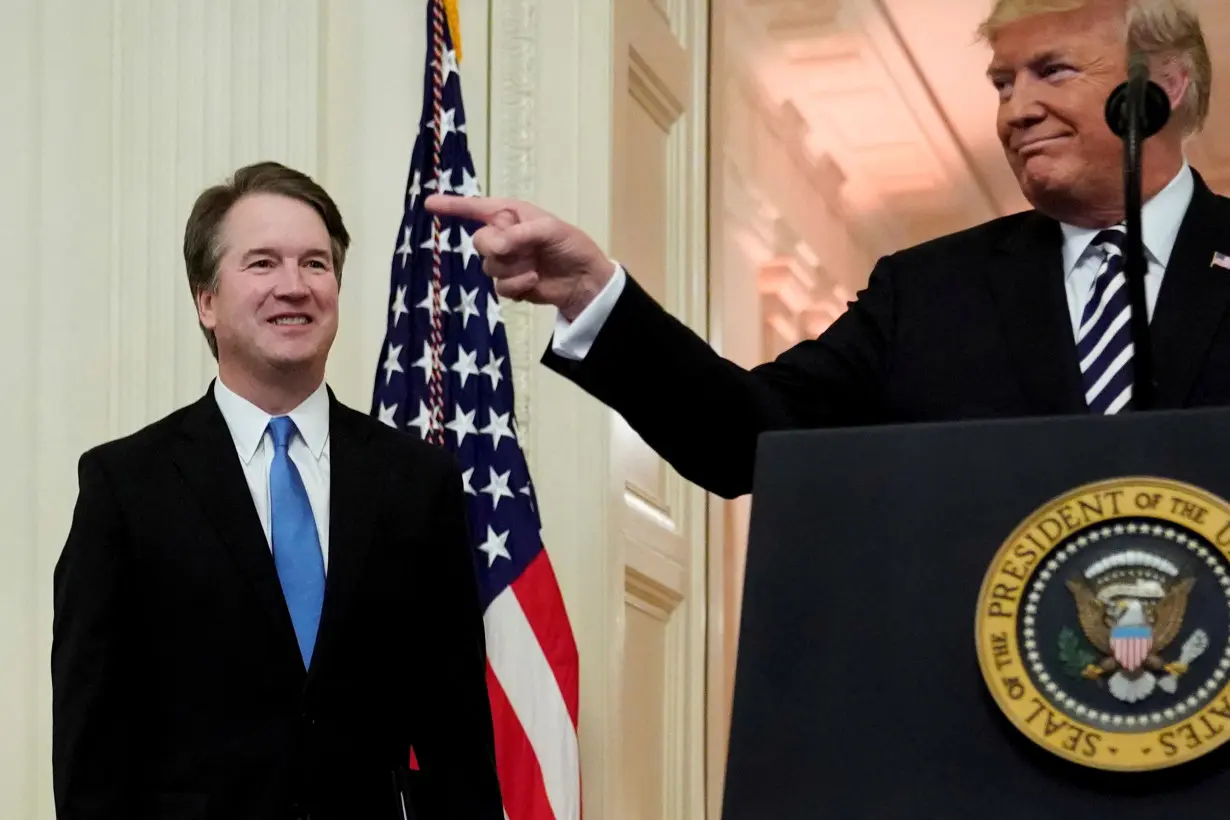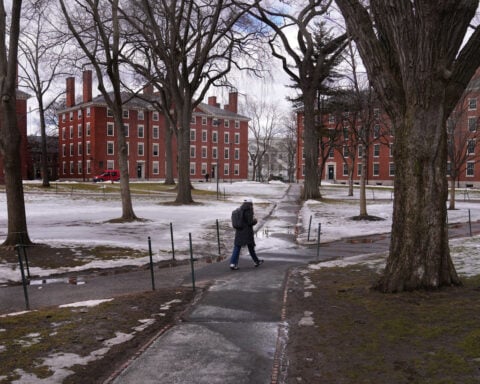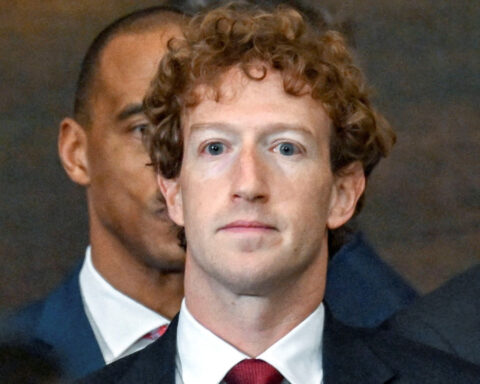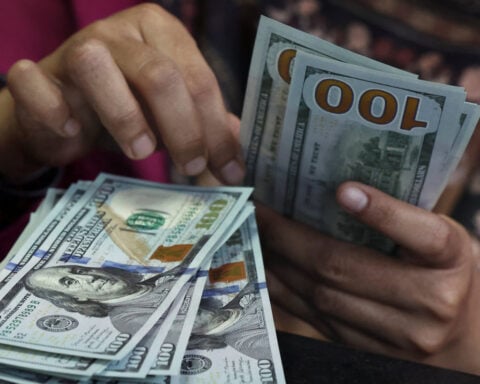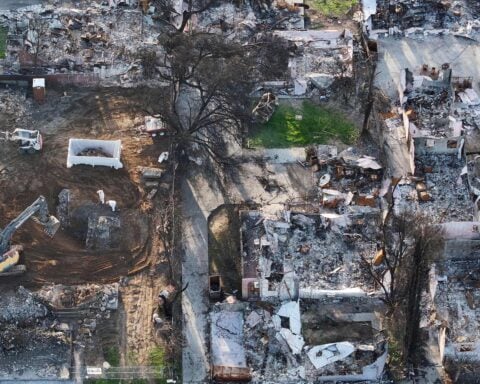By Will Dunham
WASHINGTON (Reuters) - When the U.S. Supreme Court ultimately rules on Donald Trump's claim of presidential immunity from prosecution, a third of those deciding the matter will be justices he appointed to their lifetime posts.
Those three - Amy Coney Barrett, Brett Kavanaugh and Neil Gorsuch - posed questions from various angles as the nation's top judicial body heard arguments on Thursday in a case that provides a vital test of the power of the presidency. They comprise half of the court's 6-3 conservative majority.
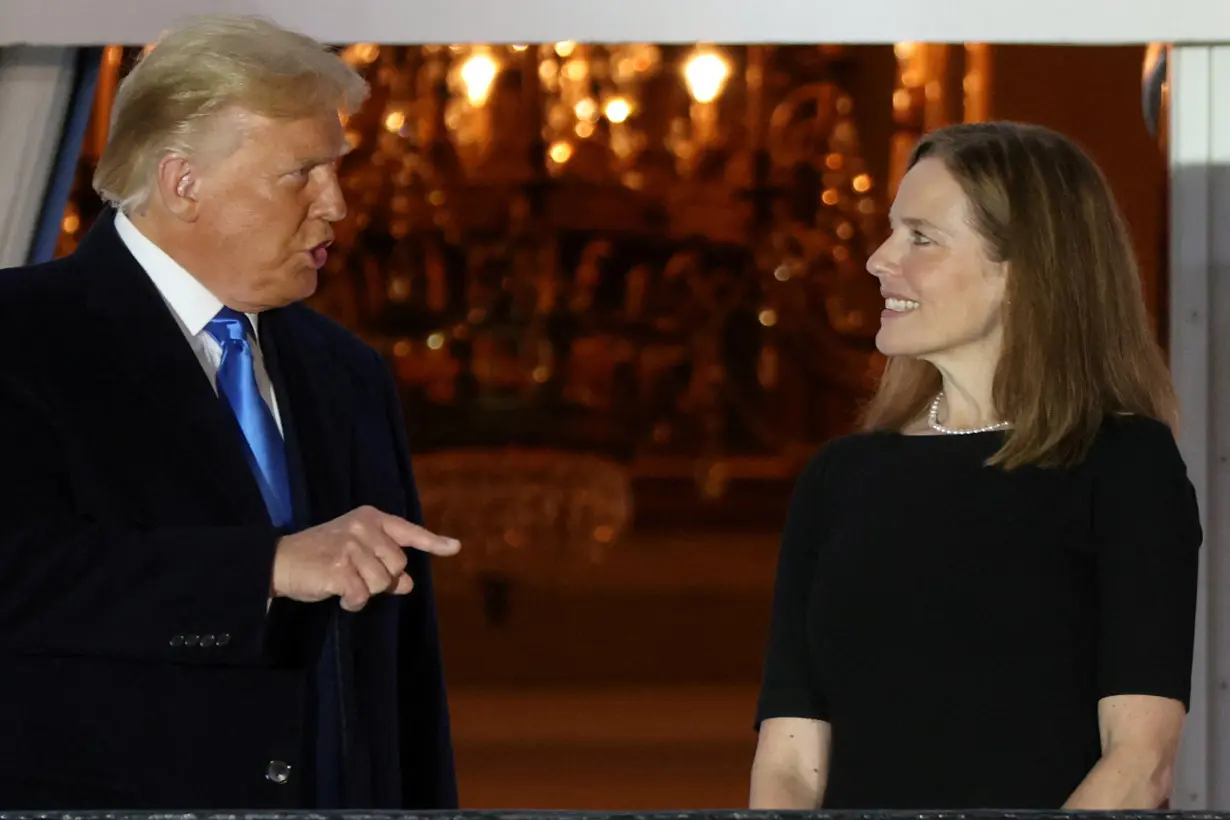
"We're writing a rule for the ages," conservative Justice Neil Gorsuch, said during the arguments.
A key question, Gorsuch said, is "how to segregate private from official conduct that may or may not enjoy some immunity."
Gorsuch also said that "fear that their successors would criminally prosecute them for their acts in office" might be an incentive for presidents "to try to pardon themselves."
"I mean, we've never answered whether a president can do that," Gorsuch said.
Trump appealed after lower courts rejected his claim of presidential immunity in a criminal case brought against him by Special Counsel Jack Smith on four charges related to efforts to overturn Trump's 2020 election loss. Trump is the Republican candidate challenging Democratic President Joe Biden in the Nov. 5 U.S. election in a rematch of the election four years ago.
Barrett questioned D. John Sauer, the lawyer arguing for Trump, about his contention that a president must be impeached and removed from office by Congress - something that has never happened in U.S. history - in order to be prosecuted for an official act taken while in office.
"OK," Barrett told Sauer. "So there are many other people who are subject to impeachment, including the nine sitting on this bench, and I don't think anyone has ever suggested that impeachment would have to be the gateway to criminal prosecution for any of the many other officers subject to impeachment. So why is the president different when the (Constitution's) impeachment clause doesn't say so?"
Sauer cited reasoning by a Justice Department official dating to the 1970s.
Barrett followed up on liberal Justice Elena Kagan's hypothetical question on prosecuting a president who orders a coup.
"You're saying," Barrett asked Sauer, "that he couldn't be prosecuted for that, even after a conviction (in an) impeachment proceeding if there was not a statute that expressly referenced the president and made it criminal for the president?"
A president could be prosecuted under that scenario, Sauer said, only if the criminal law specifically references that it applies to a president.
Sauer cited Article II of the Constitution, which delineates presidential powers, as the "source" of immunity from prosecution, even though it is not specifically mentioned in the 18th century document that laid out the American form of government.
"Then, on the source of immunity, it's not explicit in the Constitution?" Kavanaugh asked Sauer.
Kavanaugh noted that executive privilege - the legal principle that allows certain presidential records and communications to be shielded from lawmakers and the courts - is not explicit in the Constitution even though the Supreme Court has found that Article II allows for it.
"And the same principle, presumably, would apply to executive immunity being encompassed within that executive power as historically understood?" Kavanaugh asked.
"That's absolutely correct," Sauer responded.
Kavanaugh asked Michael Dreeben, the lawyer representing the special counsel, "Do you agree that there's some aspects of Article II presidential power that are exclusive and that Congress cannot regulate and therefore cannot criminalize?"
"Absolutely," Dreeben said.
For other official acts that the president may take that are not within that exclusive presidential power laid out in the Constitution, Kavanaugh asked whether "Congress has to speak clearly to criminalize official acts of the president by a specific reference."
Dreeben said that he did not think Supreme Court precedents on the issue "speak that broadly."
Barrett's appointment in 2020 after the death of liberal Justice Ruth Bader Ginsburg pushed the court's conservative majority to 6-3, from 5-4.
Gorsuch was appointed in 2017 to fill a vacancy left by the 2016 death of conservative Justice Antonin Scalia after the Republican-led Senate refused to consider Democratic President Barack Obama's nomination of Merrick Garland for the post. Kavanaugh was appointed in 2018 after conservative Justice Anthony Kennedy announced his retirement.
(Reporting by Will Dunham; Editing by Daniel Wallis)

 Trump has begun another trade war. Here's a timeline of how we got here
Trump has begun another trade war. Here's a timeline of how we got here
 Canada's leader laments lost friendship with US in town that sheltered stranded Americans after 9/11
Canada's leader laments lost friendship with US in town that sheltered stranded Americans after 9/11
 Chinese EV giant BYD's fourth-quarter profit leaps 73%
Chinese EV giant BYD's fourth-quarter profit leaps 73%
 You're an American in another land? Prepare to talk about the why and how of Trump 2.0
You're an American in another land? Prepare to talk about the why and how of Trump 2.0
 Chalk talk: Star power, top teams and No. 5 seeds headline the women's March Madness Sweet 16
Chalk talk: Star power, top teams and No. 5 seeds headline the women's March Madness Sweet 16
 Purdue returns to Sweet 16 with 76-62 win over McNeese in March Madness
Purdue returns to Sweet 16 with 76-62 win over McNeese in March Madness
